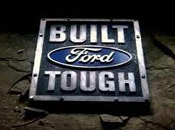You have lots of choices when comparing insurance rates on your vehicle. You can get prices from an insurance agent or get quotes online to compare rates from multiple insurance companies. Comparing car insurance on the web saves time, is easy to do and at the same time you may find lower rates.
Using the web to shop for car insurance direct is challenging if you are a beginner to online rate quotes. But relax because we're going to show you how. The are a couple different ways to compare quotes from local car insurance companies. One of the best ways to compare involves getting comparison quotes online. It is quite easy and can be accomplished by comparing rates here.
What factors determine the rate you pay?
Insurance premiums paid to insure a 2001 will vary greatly and are calculated by many factors. Taken into consideration are:
- High performance increases premiums
- Your accident history
- Home and auto can earn discounts
- How you use your vehicle
- Your age
- Whether you are married
- Special coverage such as replacement cost
- Your job
- Your coverage level
- Whether you rent or own your home
One important consideration that can impact your rates is the age of the vehicle. Used vehicles have a reduced actual cash value compared to new models so the costs to repair may end up costing you less. On the flip side, newer models have more advanced features like a telematics system, lane departure warning system, and tire pressure monitors so those may lower rates.
Liability car insurance - This protects you from damages or injuries you inflict on a person or their property. Liability insurance covers things such as emergency aid, pain and suffering, and medical services. It is cheap coverage so buy as much as you can afford.
Collision coverages - This coverage pays for damage to your from colliding with an object or car. You have to pay a deductible then the remaining damage will be paid by your insurance company. This coverage can be expensive, so analyze the benefit of dropping coverage from lower value vehicles. You can also increase the deductible to get cheaper .
Comprehensive car insurance - This pays for damage that is not covered by collision coverage. You first must pay your deductible then your comprehensive coverage will pay. The maximum amount you can receive from a comprehensive claim is the cash value of the vehicle, so if it's not worth much more than your deductible consider dropping full coverage.
Uninsured and underinsured coverage - This protects you and your vehicle's occupants when other motorists do not carry enough liability coverage. Because many people only carry the minimum required liability limits, it only takes a small accident to exceed their coverage. That's why carrying high Uninsured/Underinsured Motorist coverage is a good idea.
Coverage for medical expenses - Med pay and PIP coverage kick in for expenses like doctor visits, EMT expenses, and X-ray expenses. They are often used to cover expenses not covered by your health insurance plan or if you lack health insurance entirely. PIP coverage is not available in all states and gives slightly broader coverage than med pay.

